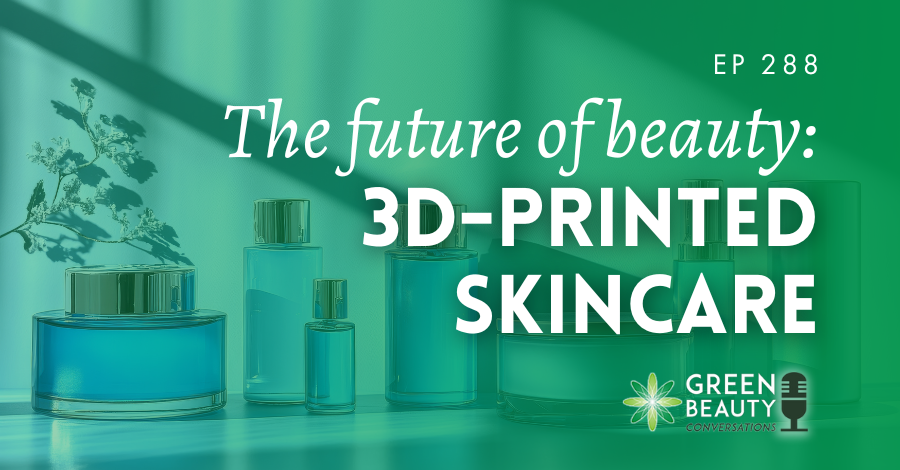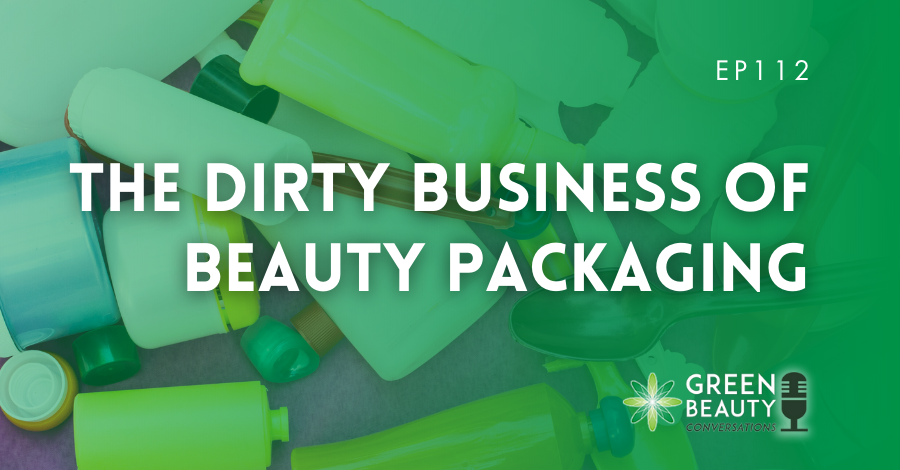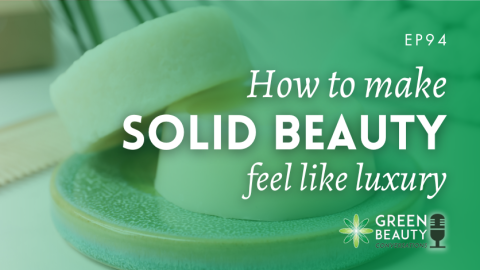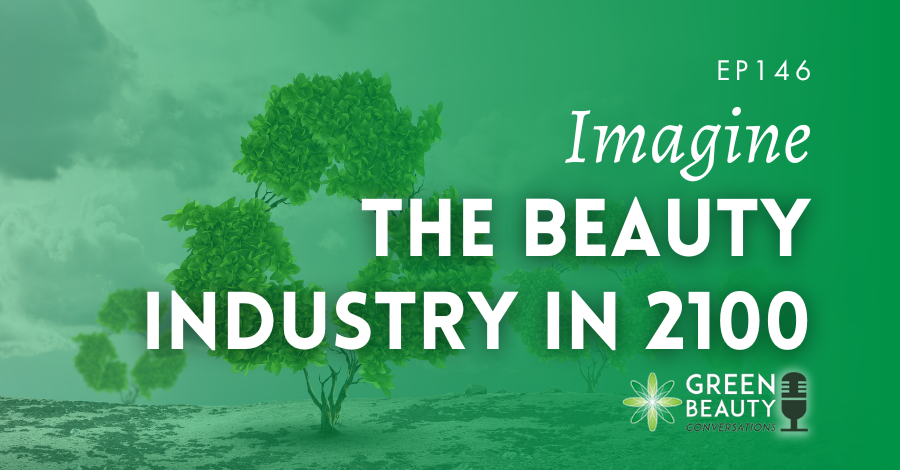What if your moisturiser wasn’t pulled off a shelf but printed for you on the spot?
In this week’s episode of Green Beauty Conversations, Lorraine Dallmeier, CEO of Formula Botanica, explores the mind-bending idea of 3D-printed skincare – a concept that could shake up everything we know about beauty.
Imagine ordering a cream tailored precisely to your skin barrier, climate, microbiome, or even last week’s bloodwork. Futuristic? Absolutely. Impossible? Not anymore.
This idea was sparked in last week’s interview with Melissa Snover of Nourished, who has built a business on 3D-printed personalised nutrition. At the end of the conversation, Melissa revealed that we could one day 3D-print topical skincare too – and Lorraine hasn’t stopped thinking about it since.
If you missed that conversation, make sure you go back and catch up. Then, listen to this week’s episode where Lorraine explores what 3D printing could mean for formulation, sustainability, and the very way we consume beauty.
From personalised products that evolve with your age and lifestyle, to biotech-powered actives ‘printed’ fresh at home or in pharmacies, this is an episode you won’t want to miss.
“If we’re serious about making beauty better, for people, for the environment; we have to stay open to the weird, to the futuristic, to the uncomfortable. 3D-printed skincare might sound like sci-fi, but so did personalised nutrition once.” — Lorraine Dallmeier
Key takeaways:
- The end of one-size-fits-all skincare: Most skincare today is still mass-produced for an ‘average’ consumer, prioritising cost and stability over individual needs. 3D-printed skincare could disrupt this outdated model by creating products that adapt to each person’s skin, environment, and preferences – something mass manufacturing cannot achieve.
- From DIY hacks to safe personalisation: Consumers are already customising their routines at home by mixing serums, SPFs, and tints. 3D printing could formalise this behaviour, making personalisation safer, more effective, and more accessible. It could even adapt formulations dynamically based on climate, age, or health data.
- Biotech meets 3D printing: Combining 3D printing with biotech could open extraordinary possibilities: printing creams with lab-cultured peptides, precision probiotics, or actives that never existed in nature but are engineered for specific skin benefits. This represents a fundamental shift in how we think about ingredients.
- A new route to sustainability: Beyond personalisation, 3D printing could reduce waste by eliminating the need to mass-produce thousands of identical units that sit on shelves for months. It could transform shelf life, preservation, and even packaging, driving sustainability far deeper than surface-level green claims.
- Opportunities and challenges ahead: Challenges remain – from regulation to scalability to the risk of brands using 3D-printed skincare as a luxury upsell. But the potential is too compelling to dismiss. For formulators and future beauty entrepreneurs, this could be the pathway to truly personalised, sustainable, and innovative cosmetics.
Thank you for joining us for this episode of the Formula Botanica Green Beauty Conversations podcast. If you enjoyed listening, please share, subscribe and review this episode on Apple Podcasts, Spotify or Youtube so that more people can enjoy the show. Don’t forget to follow and connect with us on Facebook and Instagram.
FREE TRAINING
Learn how to become an
Organic Skincare Formulator
FREE TRAINING
How to become an
Organic Skincare Entrepreneur
FREE TRAINING
How to become an
Organic Skincare Entrepreneur
Leave us a comment
Lorraine Dallmeier is a Biologist, Chartered Environmentalist and the CEO of Formula Botanica, the award-winning online organic cosmetic science school. Read more about Lorraine and the Formula Botanica Team.




























